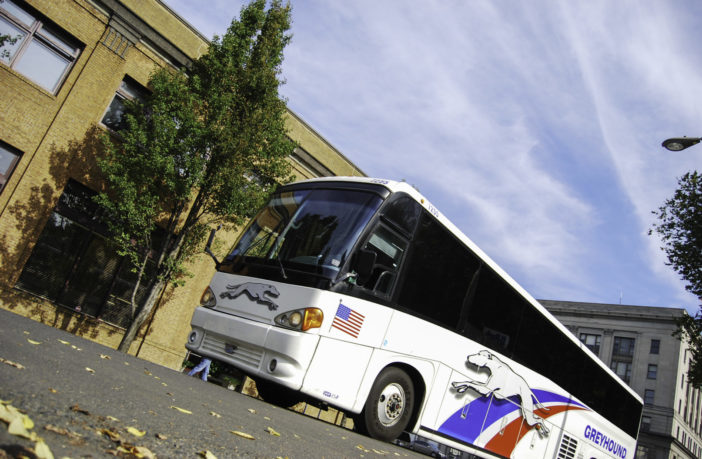Washington State is at it again. After persecuting Motel 6 for cooperating with U.S. Immigration and Customs Enforcement (ICE), it has now begun spending taxpayer money in an attempt to keep Greyhound Bus Lines from cooperating with U.S. Customs and Border Protection (CBP). The Evergreen State’s Attorney General has filed a lawsuit claiming that Greyhound violated the Washington Consumer Protection Act and the Washington Law Against Discrimination when it permitted Border Patrol agents and CBP officers to conduct passport checks and immigration inspections on vehicles that travel between the U.S. and Canada.
That is an absurd claim. The Supremacy Clause of the United States Constitution establishes that, in cases of conflict, federal law takes precedence over state law and even state constitutions. This means that states can’t enact laws prohibiting the federal government from exercising its powers. Nor can they enact legislation that makes it illegal to obey federal law.
The U.S. government has a legitimate interest in detecting illegal aliens and apprehending them before they disappear into the interior of the country. That is why immigration authorities have long conducted searches of public transportation at or near the border. These checks help combat alien smuggling, human trafficking and illicit drug dealing, while causing only a de minimis intrusion on the Fourth Amendment interests of passengers – who, in any case, possess only a minimal expectation of privacy while traveling on a public conveyance.
As FAIR has noted, in the past, neither ICE, nor CBP, need a search warrant to board and search a bus in a border zone. 8 U.S.C. § 1357(a)(3) specifically permits immigration officers, without warrant, to board and search any railway car, conveyance or vehicle, to look for illegal aliens, within a reasonable distance of any external boundary of the United States. Current law defines a reasonable distance from the border to be 100 air miles. Border zones include the regions adjacent to the northern and southern borders, as well as both coasts.
Accordingly, the Supreme Court has repeatedly found that warrantless searches at or near the border fall within the so-called “Border Search Exception” and immigration agents are free to board public conveyances in the border zone to verify travelers’ immigration status. That is a settled point of law – and has been so since 1925.
Even more illogical than Washington’s claims that its local laws trump federal statutes are the assertions made by the state’s AG Bob Ferguson about the duties allegedly owed by Greyhound to its passengers, pursuant to Washington State’s consumer protection legislation. According to Mr. Ferguson, “Greyhound must reform its practices, and warn customers of the risk they face of being interrogated by immigration agents without cause.”
In plain English, that means Washington State’s top law enforcement official believes that private corporations are under a legal obligation to warn their customers that, if they are doing something illegal, they might get caught. Although, he declined to explain why a for-profit business would be obligated to give such warnings to foreign nationals, with regard to immigration laws, but not required to issue similar warnings to U.S. citizens about other forms of law-breaking.
Washington’s lawsuit is part of a concerted campaign to bully public transport companies into supporting its open-borders agenda. The American Civil Liberties Union (ACLU) and other civil rights organizations have been leaning hard on transportation companies to push back against CBP inspections, which they characterize as a form of discriminatory profiling.
And it is working. Although both Greyhound and competitor Peter Pan were insisting that warrantless searches of conveyances by ICE and CBP do not require consent, both companies show signs of cracking under the relentless assaults launched by the ACLU and liberal states like Washington and California. Jefferson Lines, Dartmouth Coach and MTR-Western, three other major bus lines, have succumbed to ACLU pressure and have informed CBP that they will no longer consent to searches by federal immigration officers. Of course, these measures are nothing but empty virtue signaling. As has already been pointed out, neither ICE, nor CBP, need consent to conduct public conveyance searches in the border zone.
Rather than tolerating open rebellion against federal authority – at the expense of law abiding corporations and their customers – the U.S. Department of Justice should attempt to intervene and preserve the ability of ICE and CBP to protect Americans from the ever expanding threats that emanate from our borders: smuggling, trafficking, terrorism and now viral contagion. And Greyhound should politely tell AG Ferguson to butt out of its corporate affairs and “Leave the driving to us!”




